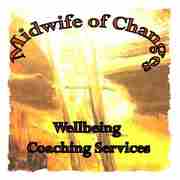Breath Gratitude! Sleep Soundly.
Sleep is an important aspect of wellbeing. According the Gallup's Wellbeing book, "Getting a good night's sleep is like hitting the reset button." They go on to say that getting 7-8 hours of sleep at night puts us in an above average mood the next day. The other interesting thing they say about sleep is that it is when our brains actually learn new things. That is, sleep helps us synthesize the learning from the day before and we wake up smarter!
In his book Thrive, Dan Buettner also speaks of sleep under the home section. He talks about books being "in" and computers being "out", as far as the need to create a living space that promotes restful sleep.
Seligman's work, Flourishing, does not specifically mention sleep, but it does talk about positive emotions. So, awakening in an above average mood would seem to fit with his theories on positive psychology.
On-call obstetrics wreaks havoc on sleep cycles. For 30 years, I trained my body to stay awake at any hour . . . not just awake, but alert. It was shifts when I was an RN. And that was bad enough because they bounce you around from days to nights a lot. But you could schedule sleep in your off times.
The pager and solo, private nurse-midwifery practice was worse because there was no control over the sleep cycle. At least once a month, I was up 72 hours straight at work. According to CNN Health: "Getting less than 6 hours a night can affect coordination, reaction time and judgment, they said, posing 'a very serious risk'." That is, it is like being drunk at work!
I always had weird sleep the day after being up more than 24 hours. First, there was the crash - a very deep sleep where I woke up fogged with a headache. The next time I slept (cycle #2), I got the most outlandish real-feeling nightmares.
Night call ended for me 10 years ago; but sleep issues did not. It took hours, sometimes, to fall asleep. I could relax but my mind was trained to hold-on to alertness, no matter how sleepy. Then, let there be two loud noises during the night (like cats at play), and my brain is sure my pager is alarming me to stay awake.
I have had to use light meds to help with sleep for years. Even with these, getting to sleep was a battle much of the time.
About 2 years ago, I purchased something called an emwave. It is a cool little hand-held biofeedback-type devise that helps us balance our "fight or flight" and "rest and digest" systems. It is the balance between the two, it seems, that prepares us for sound sleep.
Heartmath, the folks who created the emwave, instruct you to focus on gratitude while doing slow chest breathing. When there is balance between heart and brain chemistry, a little green light comes on. In addition to the breathing and positive throughts, I use photos of Native American ruins (I am grateful to life in the SW and have this heritage) and listen to relaxing instrumental music. The easier it is to get 4-6 cycles of "green light" balance, the better I sleep.
Sleep is important to wellbeing. I have learned that lesson over and over in my life. How much sleep do you get per night and how does it influence your mood, health and wellbeing?
Also on my blog - http://midwifeofchanges.blogspot.com/2011/11/breath-gratitude-sleep-soundly.html



Hi Midwife of Changes,
Thanks for sharing this important information about sleep. Which am sure will be helpful to many.
Sleep Disorders
Best,
Daisy
August 4, 2012 - 8:24pmThis Comment